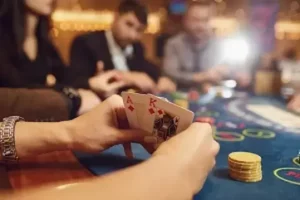A recent report by gambling addiction charity, GambleAware, has revealed that UK operators are failing to make sufficient contributions to charity organisations. This news comes despite an increase in donations made by the biggest names in the business after a commitment to offering more support back in 2019.
Campaigners have levelled criticism at such gaming operators making disproportionately small contributions, with the spotlight squarely focused on companies with multi-million football sponsorships in place.
Commenting on this year’s data, CEO of GambleAware Zoë Osmond said: “It is estimated that two million adults in Great Britain are experiencing some level of gambling harm, and research published this year indicated that more than one in three people with a gambling disorder have not accessed any support or treatment.” Osmond also stressed the value of these contributions, highlighting that “with these donations, we will continue to fund and improve the National Gambling Treatment Service to provide support for those who need it.”
The UK requires gaming companies to make these voluntary donations in order to retain their operating licences, and this recent report has sparked a renewed call for stricter measures to safeguard the vital support offered by gambling charities.
These organisations offer crucial services to those suffering from gambling addiction, including education and treatment as well as ongoing research into the affliction and what operators must do to protect individuals who participate in the industry.
Mid-April saw GambleAware publish its annual list of donors, which outlines the charitable contributions made by each individual operator. The report revealed that among those making smaller contributions were a slew of operators providing overseas companies with access to the UK market through what is known as the ‘white label system’.
One Philippines-based company, W88, was found to have contributed as little as £250 to GambleAware through one such deal with Midnight Gaming, which is the current shirt sponsor for Crystal Palace FC.
Under the terms of the current agreement, operators must donate at least 0.1% of their revenue to the charity each year in order to retain their licence. According to national director for mental health at the NHS, Claire Murdoch, such low contributions lead to insufficient funding for the charity, which in turn increases the strain on the NHS which must handle the fall-out as a result.
White label companies operate in territories like Malta or the Isle of Man which make it possible for them to offer their services to foreign gaming companies for a fee. Using this type of service allows said brands to increase their advertising opportunities and exposure through shirt sponsorships.
Operators such as Vivaro, BGE, and TGP Europe were all found to have made contributions between £2,000 and £10,000, despite having sponsorships in place worth over £5 million annually. The top four operators in the UK – bet365, William Hill, Flutter Entertainment, and Entain, have responded to criticism by increasing their donations to £19 million collectively this year, up £9 million from the previous year.
Calls on the UK government to impose a mandatory levy on operators have thus far fallen on deaf ears, even with the sharp increase in scrutiny of the gaming sector generally.
In light of this inaction, the UK Gambling Commission (UKGC) has now teamed up with GambleAware and campaigners to make a fresh push for the levy, which would require these companies to donate more substantial amounts in order to continue operating in this jurisdiction.
The Charity Commission recently reported that while the Denise Coates Foundation received no less than £85 million in donations by March 2020 alone, under £10 million had actually been used to support the projects and research which gambling charities typically use these funds for.
Questions are being raised about why the charity is not spending more of the £385 million it currently holds, with criticism aimed at Coates for failing to do her part to prevent or minimise the harm caused by gambling addiction, despite raking in a record-breaking £421 million in 2020.
 The list of the richest poker players
Read Full Article
The list of the richest poker players
Read Full Article
 Everything a beginner needs to know about straight draws
Read Full Article
Everything a beginner needs to know about straight draws
Read Full Article
 The concept and features of the dealer’s position
Read Full Article
The concept and features of the dealer’s position
Read Full Article